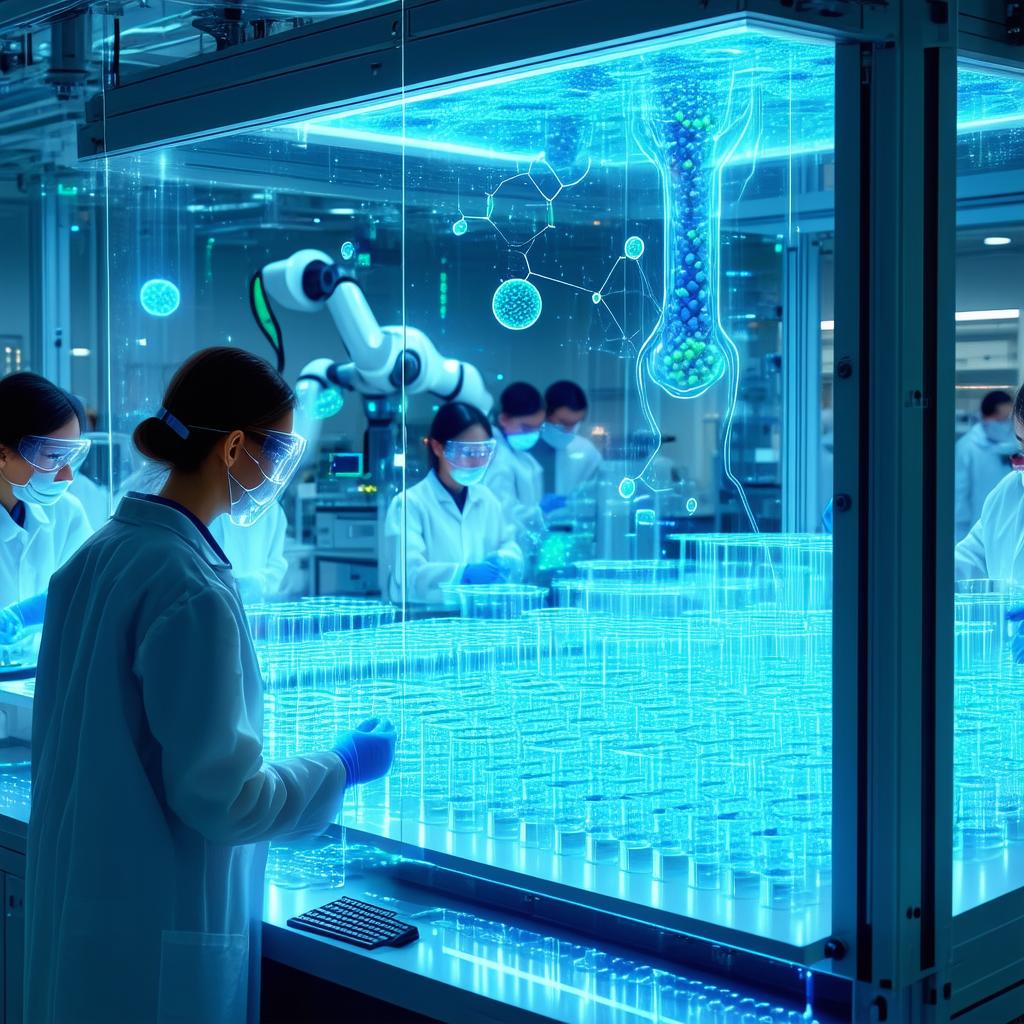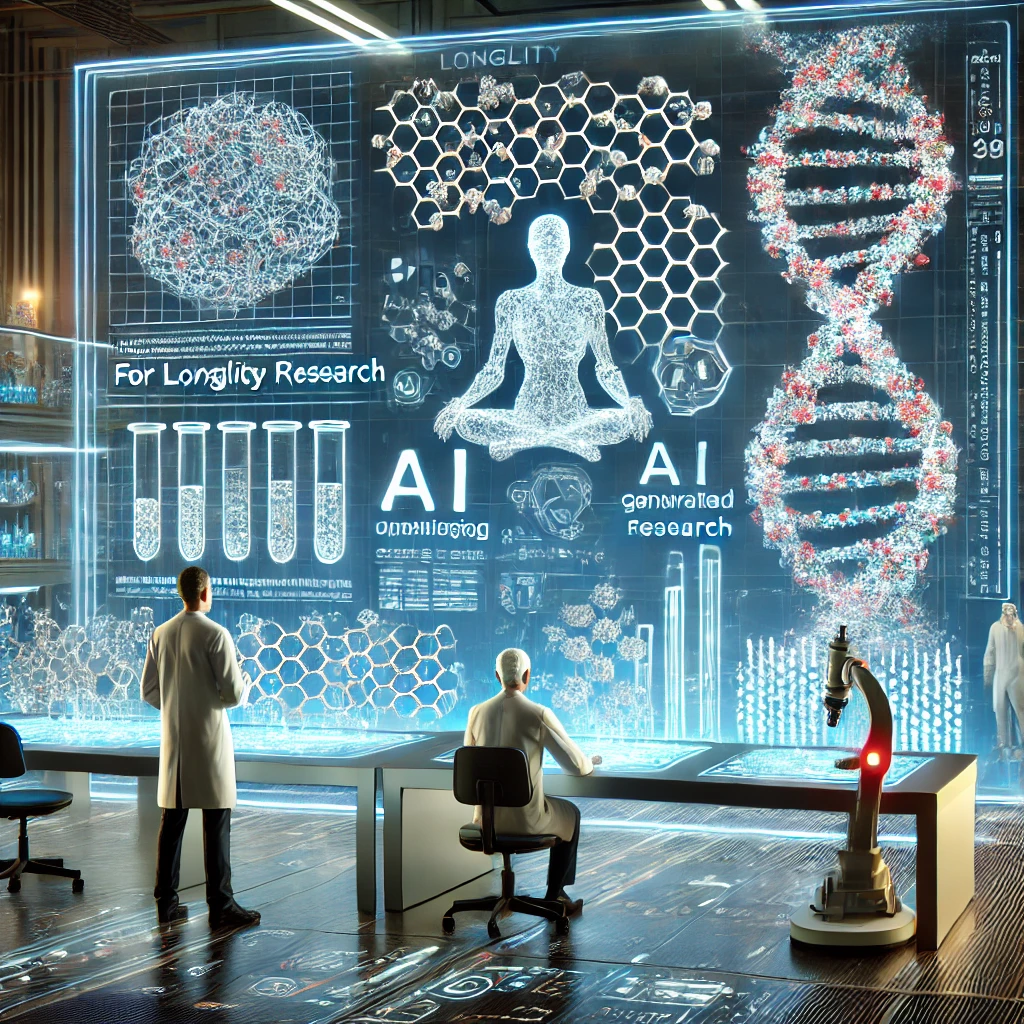Introduction
Artificial intelligence is no longer confined to chatbots and recommendation algorithms. It is now making significant strides in scientific discovery, and OpenAI has stepped into the domain of longevity research with a groundbreaking AI model. The latest development, GPT-4b micro, is designed to engineer proteins that enhance stem cell creation, a field with vast implications for regenerative medicine and human lifespan extension.
This blog explores OpenAI’s contribution to longevity science, the significance of its AI-driven protein engineering model, and its potential impact on global healthcare and scientific advancements.
OpenAI’s Entry into Longevity Research
OpenAI, known for developing cutting-edge AI models like ChatGPT, has now ventured into biological sciences. With a model capable of designing proteins to improve stem cell reprogramming, OpenAI aims to push the boundaries of scientific research and regenerative medicine.

The Science Behind Stem Cells
Stem cells are the foundation of regenerative medicine. They have the unique ability to develop into different cell types, offering promising treatments for diseases such as Parkinson’s, diabetes, and heart disease. However, converting regular cells into stem cells has been inefficient, with success rates of less than 1%.
This is where OpenAI’s GPT-4b micro comes into play. By optimizing the Yamanaka factors—proteins responsible for cellular reprogramming—this AI model has dramatically improved efficiency, making stem cell generation faster and more reliable.
How GPT-4b Micro Advances Stem Cell Science
The Role of AI in Protein Engineering
Protein design has traditionally been a trial-and-error process, requiring extensive lab experiments. OpenAI’s AI model changes the game by analyzing vast datasets of biological sequences to generate optimized protein structures. Unlike DeepMind’s AlphaFold, which predicts protein structures, GPT-4b micro focuses on reimagining protein sequences to improve their functionality.
Breakthroughs in Yamanaka Factor Enhancement
Retro Biosciences, a longevity-focused company funded by OpenAI CEO Sam Altman, collaborated with OpenAI to apply AI-generated protein suggestions. Early results indicate that two modified Yamanaka factors became over 50 times more effective than their original forms, a remarkable improvement that could significantly boost stem cell research.
AI’s Ability to Explore Infinite Possibilities
Protein engineering involves countless possible variations, as proteins consist of hundreds of amino acids, each with 20 possible substitutions. GPT-4b micro excels by generating high-impact modifications, often altering up to a third of a protein’s structure, leading to substantial functional enhancements.
The Connection to Artificial General Intelligence (AGI)
OpenAI’s work in longevity research is not just about biological advancements—it is also a step toward Artificial General Intelligence (AGI). AGI refers to AI that can perform any intellectual task a human can, including scientific discovery.
Scientific Discovery as an AGI Milestone
By demonstrating AI’s capability to generate novel biological insights, OpenAI is showcasing the potential of AGI in solving complex problems beyond human expertise. This success suggests that AI-driven research could accelerate breakthroughs in medicine, chemistry, and physics.
A Glimpse into the Future of AI-Powered Research
If AI can design better proteins for stem cell reprogramming, it could also revolutionize drug discovery, genetic engineering, and even personalized medicine. OpenAI’s foray into longevity science hints at a future where AI contributes directly to extending human healthspan.
Potential Impact on Healthcare and Medicine
Regenerative Medicine and Organ Rejuvenation
With enhanced stem cell production, regenerative medicine could advance significantly. Scientists may soon develop replacement tissues and even organs, reducing the need for transplants and prolonging human life.
Tackling Age-Related Diseases
Improved stem cell therapies could offer new treatments for neurodegenerative diseases, cardiovascular conditions, and other age-related ailments, ultimately improving the quality of life for millions.
Bridging AI and Biotechnology
The integration of AI with biotechnology will pave the way for more personalized medical treatments. AI-powered models could predict individual responses to therapies, reducing trial-and-error approaches in drug development.
Ethical and Industry Considerations
Sam Altman’s Dual Role in OpenAI and Retro Biosciences
While OpenAI maintains that Sam Altman was not directly involved in the project, his financial backing of Retro Biosciences raises concerns about conflicts of interest. Critics argue that the intersection of AI and private biotech funding could blur ethical lines.
Transparency and Accessibility
Although OpenAI and Retro plan to publish their findings, the AI model remains unavailable for public use. This raises questions about who will ultimately benefit from these advancements—large biotech firms or the broader scientific community.
AI’s “Black Box” Problem
Despite the promising results, it remains unclear how GPT-4b micro arrives at its conclusions. The lack of transparency in AI decision-making is a common challenge, particularly in critical fields like medicine and biotechnology.
The Future of AI in Longevity Science
Will OpenAI Make the Model Public?
It remains uncertain whether OpenAI will release GPT-4b micro for broader research or commercialization. If made available, the AI model could democratize access to advanced protein engineering tools, fostering global collaboration in longevity science.
AI-Powered Drug Discovery
Beyond stem cells, AI-driven protein design could accelerate drug discovery, reducing the time and cost required to develop life-saving medications.
Collaboration Between AI and Human Scientists
Rather than replacing researchers, AI could become a powerful collaborator, augmenting human expertise and accelerating scientific progress across multiple disciplines.
Conclusion
OpenAI’s venture into longevity research marks a significant milestone in AI’s role in scientific discovery. By improving stem cell reprogramming, GPT-4b micro could revolutionize regenerative medicine, offering new hope for age-related diseases and organ rejuvenation.
While challenges remain—ranging from ethical concerns to AI transparency—the potential benefits are undeniable. If OpenAI continues down this path, AI-driven biological research could reshape healthcare, pushing humanity closer to unlocking the secrets of longevity.
As with all groundbreaking advancements, further research and ethical considerations are necessary to ensure that AI’s impact on longevity science is both responsible and accessible to all.
Courtesy: Internet
Read Also:
OpenAI is trying to extend human life, with help from a longevity startup









🎪 Step into the creative circus! you r ringmaster of innovation.